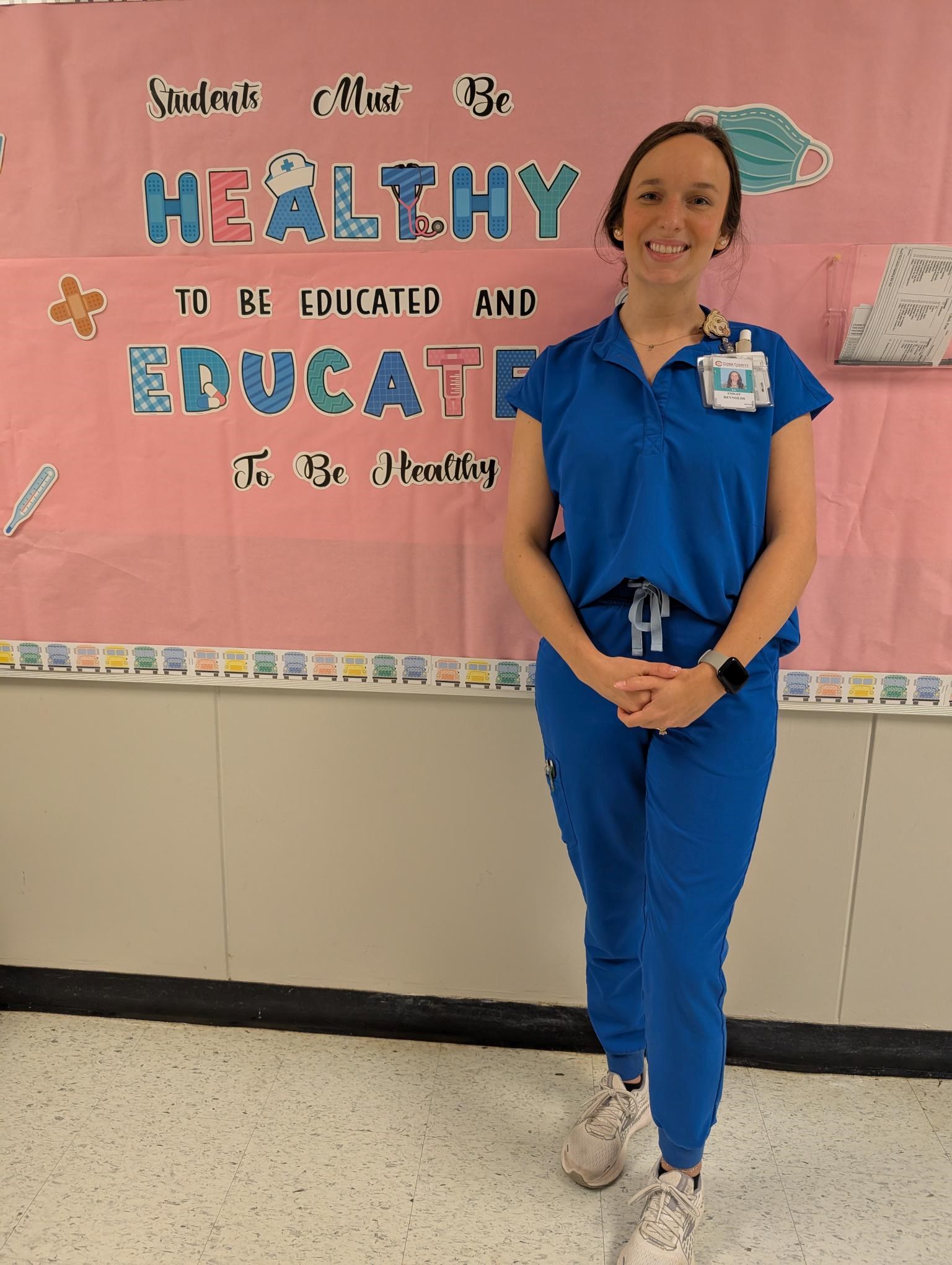Clinic

Emilee Reynolds, Nurse
Cobb County Schools County Nursing Website & Policies
Please use the below link to determine if your child is well enough to send to school. While we would love to see your child at school, we do not want to risk the health and safety of our other students and staff. It's best to keep your child home if they are sick. Please do not give a child fever reducing medication and send them to school. The fever will come back and your child will tell us they received meds that morning; happens every time!
Is my student well enough to go to school (Form JGC-6)?
¿Está mi estudiante lo suficientemente sano para ir a la escuela?
For more information about medications and healthcare at school, please see Administrative Rule JGCD-R
Medication at School
A. Any medication must be brought to school by the student's parent, legal guardian, or other designated adult and stored in a locked cabinet while at school. Some medication (e.g. asthma inhalers) can be self-transported and remain in the possession of the student if a written order from a licensed medical provider is obtained.
1. Written parental consent is required for all medications administered during school.
2. The parent/guardian is responsible for:
a. Completing and signing the parental consent, including the name of the pupil, the name and
strength of the medication, the dosage of medication to be given, and the time the medication
is to be given.
b. Keeping the medication in the original container.
c. Assuring that new prescribed medication is administered at home for a full day prior to a
child coming to school to have the medication administered by school personnel.
d. Personally collecting from the school any unused portion of the medication within one week
after expiration of the physician's order. Medication that is not personally collected by
the parent/guardian will be destroyed.
e. Coordinating doses administered at home with the school's medication dispensing schedule,
when possible.
f. Prohibiting any change in dosage or time of the administration of medication unless authorized
in writing by the physician.
B. If a student may require emergency treatment involving hypodermic injections, prior approval must be obtained by using the appropriate form.
C. A licensed clinic assistant or school employee will administer prescribed medication during the school day, with written permission from the child's parent/guardian.
D. Over-the-counter medications (e.g. cough drops, Tylenol, Sudafed, etc.) must be maintained in the original container and kept in a locked cabinet and administered by a school employee.
1. School employees and clinic workers are not authorized to administer over-the-counter diet pills or dietary supplements, including but not limited to vitamins, minerals, or herbs.
2. Written parental consent for the administration of medication is required for each over-the-counter medication (e.g. Tylenol, Sudafed, Cough drops, etc.).
